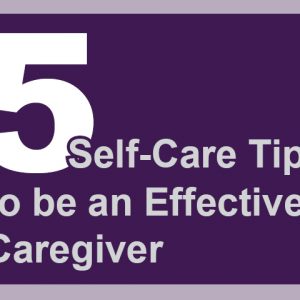 by Janel Ruby, LBSW
by Janel Ruby, LBSW
Does it feel like overnight the world as you know it has changed? If it does, you aren’t alone. Trying to balance the recommended guidelines for social distancing while grieving can be daunting.
Does your daily life look different right now? Yes. Will this go on indefinitely? No.
Taking good care of yourself becomes even more important during times of stress and grief. Self-care includes tending to your own physical, emotional and social well-being. The basics of self-care haven’t changed even with current events, but it can feel overwhelming to concentrate on yourself when you are grieving and facing uncontrollable circumstances.
It’s possible to find ways to practice good self-care even in times of turmoil. Take one step at a time and know that a few small changes can make a lasting impact on your overall health and help you on your path to healing.
So, what can we do to help ourselves right now?
1. Get Plenty of Rest
People can feel more tired than normal following the death of a loved one. Grieving is a lot of work and you may require more rest at this time. The benefits of 7-9 hours of sleep at night include reducing stress and inflammation, feeling more alert and improving memory. Getting a good night’s rest can also help increase helpful chemicals in your body, like serotonin, that can help prevent depression.
Napping during the day is an effective, refreshing alternative to caffeine that is both good for your overall health and can increase your productivity. Sleep helps the body by repairing damage caused by stress, ultraviolet rays and other harmful exposure.
2. Take Care of Your Physical Health
Be active by participating in your favorite physical activity. There are many options you can do at home. Some include online guided activities, such as yoga, dance and other workouts with limited equipment. Enjoy the outdoors through going for a walk, yardwork and more. Did you know that a regular brisk walk can help you maintain a healthy weight, strengthen your bones and muscles and improve your mood? The faster, farther and more frequently you walk, the greater the benefits.
3. Take Care of Your Nutritional Health
Many grieving individuals will experience an increase or decrease in their appetite, which will often resolve on its own after a period. There are five key messages in healthy food choices:
- Make at least half your grains whole
- Vary your veggies
- Focus on fruit
- Get your calcium-rich foods
- Eat lean proteins
Try to cook regular meals that can be divided into smaller quantities and stored in the freezer for later.
4. Take Care of Your Emotional Health
We honor our grief feelings when we give attention to them. You have the right to experience your own unique grief; your grief is your grief. Claim it as your own and be honest with your emotions by allowing yourself to express how you are feeling—sadness, anger, guilt, relief.
Becoming familiar with the terrain of these emotions and establishing self-care guidelines can and will help you authentically mourn and heal in small ways over time. Some techniques that can help with this include journaling, meditation, daily affirmations, creating a list of things you are grateful for and exploring creativity.
Creative expression can help us to see the world in a new way. Expressing ourselves creatively can include writing, painting, sewing, woodworking, knitting, crafts, photography … the list is endless. Getting lost in the flow of creativity can lead to a greater appreciation of the beauty of life that surrounds us.
5. Connect with Others
It’s important to look at all the supports in our lives and to be open to support systems we may not have previously considered. There are still ways to connect even with the current social distancing guidelines. There may be times when we can’t physically be together, but we can still connect in other ways, including phone calls, texts and letter writing. There are many ways to take care of your social well-being through technology, such as FaceTime, Zoom, Skype, among others.
Set a schedule to “check-in” with your loved ones on a weekly basis. Take advantage of this unique time to nurture the relationships in your life. You may be surprised on how this time away from others can create a space for more gratitude and reflection in your life.
Keep in mind what Arthur Ashe once said, “Start where you are. Use what you have. Do what you can.”
If you are having difficulty coping with your grief, we can help. Hospice of the Red River Valley grief specialists are ready to help you through this painful time. You don’t have to grieve alone. Call (800) 237-4629 and ask to speak to someone in the grief support department.
Janel Ruby is a grief specialist with Hospice of the Red River Valley.
About Hospice of the Red River Valley
In 1981, Hospice of the Red River Valley was founded on the belief that everyone deserves access to high-quality end-of-life care. We fulfill our nonprofit mission by providing medical, emotional, personal and spiritual care, as well as grief support to our patients, their families and caregivers during a tender time in life. Our staff helps those we serve experience more meaningful moments through exceptional hospice care, 24 hours a day, 365 days a year, wherever a patient calls home. The organization serves more than 40,000 square miles in North Dakota and Minnesota, including in and around Bismarck, Detroit Lakes, Devils Lake, Fargo, Fergus Falls, Grand Forks, Lisbon, Thief River Falls, Valley City and many more communities. Hospice of the Red River Valley offers round-the-clock availability via phone, prompt response times and same-day admissions, including evenings, weekends and holidays. Contact us anytime at 800-237-4629 or hrrv.org.




